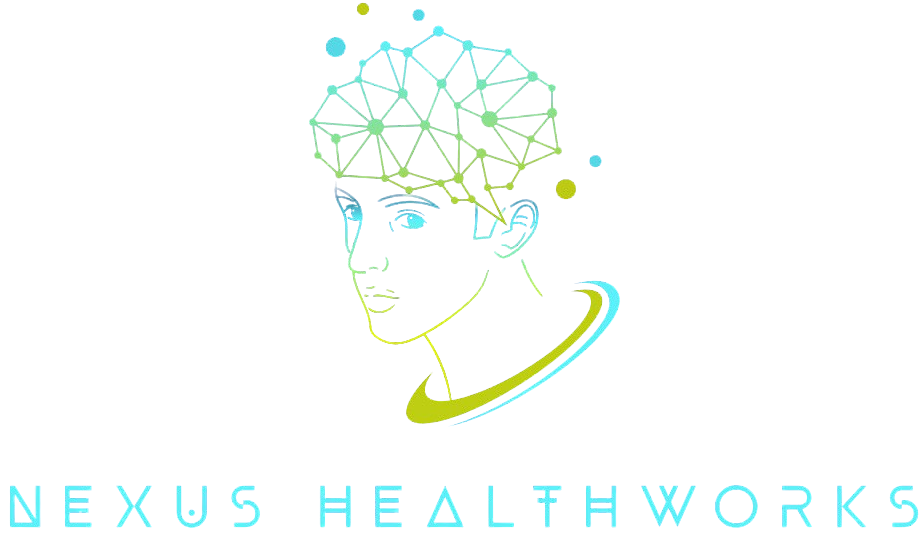Anxiety disorders are among the most common mental health conditions, affecting individuals of all ages. They go beyond occasional worry or stress, often manifesting as overwhelming fear, physical symptoms, and avoidance behaviors that interfere with daily life. Common types include generalized anxiety disorder (GAD), panic disorder, social anxiety disorder, and specific phobias.
At Nexus Healthworks NP in Psychiatry P.C., we specialize in addressing anxiety disorders with personalized care plans that include psychotherapy and medication management when necessary. We aim to help patients reclaim their lives and find peace of mind by taking a holistic approach.
Symptoms of Anxiety Disorders
Identifying the signs of an anxiety disorder early is key to effective treatment. Symptoms can vary, but they often include:
- Persistent worry or fear that is difficult to control.
- Restlessness or feeling “on edge.”
- Physical symptoms such as rapid heartbeat, sweating, or dizziness.
- Trouble concentrating or focusing.
- Avoidance of certain situations, people, or activities.
- Difficulty sleeping or staying asleep.
- Fatigue, even after adequate rest.
- Irritability or feeling overwhelmed.
These symptoms may occur consistently or during specific situations, but professional care is essential when they begin to interfere with daily life.
Why Timely Treatment for Anxiety Matters
Anxiety disorders, when left untreated, can significantly impact a person’s mental and physical health. Seeking care is crucial because:
- Chronic anxiety can lead to physical health issues, such as heart problems, digestive issues, or weakened immunity.
- Anxiety often affects relationships, leading to isolation and difficulty communicating with loved ones.
- It can interfere with academic, professional, or personal goals, limiting growth and opportunities.
- Untreated anxiety may worsen over time, resulting in panic attacks or the development of additional mental health concerns like depression.
- Early intervention equips individuals with coping tools that can prevent long-term challenges.
- Addressing anxiety provides individuals with the clarity and confidence to live fuller, more productive lives.
Anxiety is manageable, and with the right care, individuals can regain control and improve their quality of life.
A Personalized Approach to Anxiety Treatment
At Nexus Healthworks NP in Psychiatry P.C., we provide evidence-based treatment plans tailored to each individual’s unique needs. Our comprehensive care focuses on helping children aged six and over, adolescents, and adults achieve lasting relief from anxiety.
Steps in the Treatment Process
- Thorough Assessment and Diagnosis: Our care begins with an in-depth evaluation to understand the type and severity of anxiety and any contributing factors.
- Developing a Customized Care Plan: Each patient receives a personalized plan that combines psychotherapy, medication management if needed, and lifestyle recommendations.
- Psychotherapy for Skill Building: Cognitive-behavioral therapy (CBT) teaches patients how to identify triggers, challenge negative thought patterns, and build healthy coping mechanisms.
- Medication Management (if needed): Medications such as selective serotonin reuptake inhibitors (SSRIs) or benzodiazepines may be prescribed to reduce symptoms and improve daily functioning.
- Lifestyle Adjustments and Stress Management: Patients should incorporate exercise, mindfulness, and proper nutrition to complement their treatment.
- Ongoing Support and Follow-Ups: Regular check-ins help ensure the treatment plan remains effective and adjusts as needed to reflect the patient’s progress.
Strategies for Reducing Anxiety and Preventing Relapse
Prevention plays a critical role in managing anxiety disorders long-term. Key strategies include:
- Building Healthy Routines: Regular sleep, exercise, and a balanced diet support overall mental health.
- Learning Stress Management Techniques: Mindfulness, yoga, or breathing exercises can help reduce anxiety in real-time.
- Avoiding Triggers: Recognizing and minimizing exposure to stressors, such as certain environments or substances, helps maintain stability.
- Engaging in Therapy: Continued participation in therapy provides ongoing tools for managing anxiety effectively.
- Fostering Supportive Relationships: Building strong social connections creates a network of encouragement and understanding.
- Practicing Self-Awareness: Recognizing early signs of increased anxiety allows for prompt intervention before symptoms escalate.
What Patients Can Expect
With appropriate treatment, individuals living with anxiety disorders often experience transformative improvements in their mental and emotional well-being. Patients who actively participate in therapy and adhere to their care plans typically report a reduced frequency and intensity of anxious thoughts and behaviors. They gain an increased ability to manage stress effectively in everyday situations, significantly enhancing their overall stability.
Many also experience improved relationships with family, friends, and colleagues as they develop better communication and coping skills. Greater confidence in pursuing academic, career, or personal goals becomes a reality, fostering a renewed sense of purpose. Additionally, treatment often leads to enhanced emotional stability, improved quality of life, and a profound sense of peace and control over the future. Through consistent care and support, individuals can relieve anxiety and rediscover joy and fulfillment in their daily lives.
Frequently Asked Questions
What causes anxiety disorders?
Anxiety disorders result from a combination of genetic, environmental, and psychological factors. Understanding these causes helps guide effective treatment.
Can children experience anxiety disorders?
Yes, children can develop anxiety disorders. Early diagnosis and intervention are key to helping them manage symptoms and thrive.
How effective is treatment for anxiety disorders?
Most individuals experience significant symptom relief and improved quality of life with a combination of therapy, medication, and lifestyle changes.
Are medications always required to treat anxiety?
Not always. Many patients benefit from psychotherapy alone, but medication may be recommended for more severe symptoms.
Can anxiety disorders be cured?
While anxiety disorders are often chronic, they are highly manageable with ongoing care, allowing individuals to lead fulfilling lives.
Take Control of Your Anxiety Today
Living with anxiety can feel overwhelming, but help is within reach. At Nexus Healthworks NP in Psychiatry P.C., we are dedicated to helping individuals of all ages find relief through compassionate and evidence-based care. If you or a loved one is struggling with anxiety, don’t wait to seek help. Contact Nexus Healthworks NP in Psychiatry P.C. today to start your journey toward lasting emotional wellness. We can create a path to a calmer, more fulfilling future.




